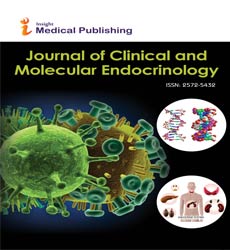Abstract
Thyroid Dysfunction Induced By Immune Check-Point Inhibitors
The immune system is the core defense against cancer development and progression. Failure of the immune system to recognize and eliminate malignant cells plays an immense role in the pathogenesis of cancer. The paramount achievement in immunotherapy particularly Immune Checkpoint Inhibitors (ICI) over the recent decade has brought about a major paradigm shifts i n cancer treatment.
ICIs represented mainly by inhibitory monoclonal antibodies Anti-cytotoxic T-lymphocyte Antigen4 (CTLA-4) (ipilimumab), anti-programmed cell death protein 1 (PD-1- pembrolizumab/nivolumab/cemiplimab), Anti-PD-1 Ligand molecules (PD-L-1-atezolizumab/avelumab/durvalumab) reactivate the immune system against tumor c ells but can also trigger a myriad of autoimmune side effects, termed immune-related Adverse Events (irAEs). Immunotherapy related adverse events typically have a delayed onset and prolonged duration compared to adverse events from chemotherapy, and its effective management depends on early recognition and prompt intervention with immune suppression and/or immunomodulatory strategies.
The present review aims to raise awareness about the thyroid side effects of immune checkpoint inhibitors to physicians who are taking care of cancer patients and to specialists-mainly oncologists and endocrinologists who are urged to cooperate for the management of thyroid immunotoxicity.
Author(s):
Abstract | Full-Text | PDF
Share this

Google scholar citation report
Citations : 120
Journal of Clinical and Molecular Endocrinology received 120 citations as per google scholar report
Abstracted/Indexed in
- Google Scholar
- China National Knowledge Infrastructure (CNKI)
- Publons
- Secret Search Engine Labs
Open Access Journals
- Aquaculture & Veterinary Science
- Chemistry & Chemical Sciences
- Clinical Sciences
- Engineering
- General Science
- Genetics & Molecular Biology
- Health Care & Nursing
- Immunology & Microbiology
- Materials Science
- Mathematics & Physics
- Medical Sciences
- Neurology & Psychiatry
- Oncology & Cancer Science
- Pharmaceutical Sciences

